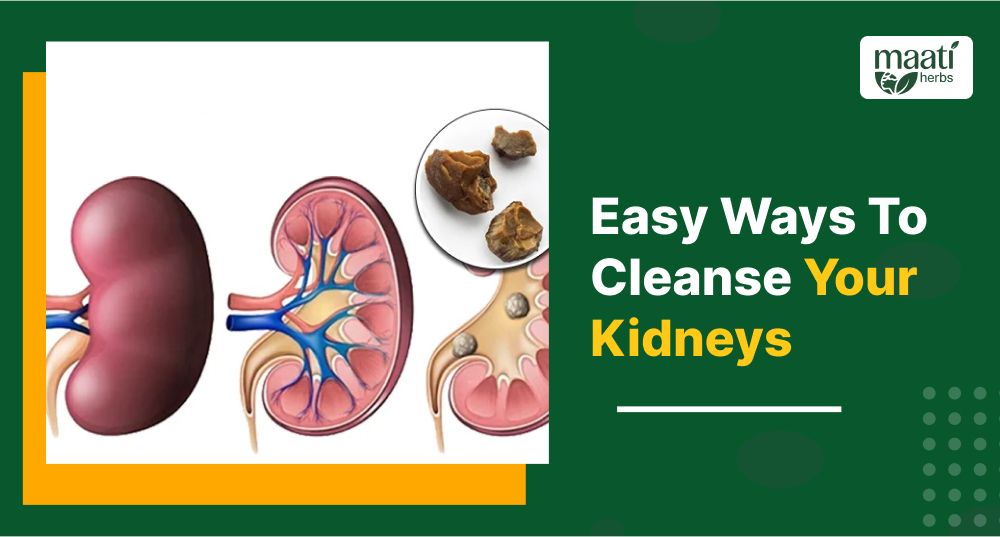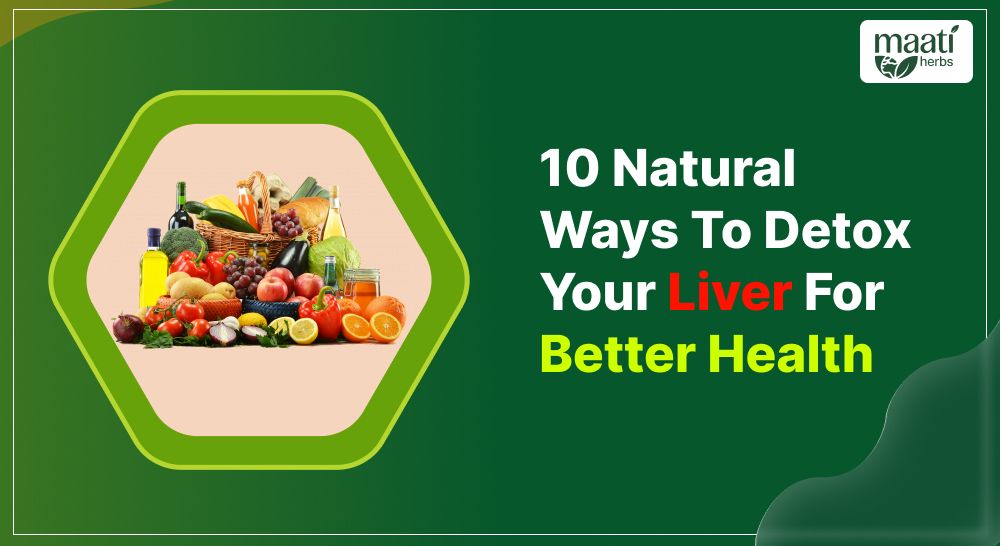Liver Health: 11 Signs Your Liver Needs a Detox
The liver is an amazing and complex organ situated in the upper right side of your abdomen and it is definitely one of the most important work horses of the body. It is amazing that this mass of about 1.5 kilograms, has an amazing number of more than 500 critical functions that support life.
Among its most important functions are the processing of nutrients in the food that you consume, metabolism of drugs and alcohol, the production of bile which is important in the digestive process, the synthesis of proteins and cholesterol and most importantly, it serves as the central detoxification plant of the body. It carefully filters blood, changing harmful toxins and waste products into less toxic ones that may be easily got rid of in the body via the urine or stool.
The most important thing to know is that the liver does not usually require a detox in the form of a severe, acute cleanse, but rather, is actually programmed to detoxify continually. Instead, the symptoms commonly labeled as the result of a sluggish liver are better seen as the indications that your liver could use more support, a lighter workload, and a bit of attention to the health in general.
When these signs are ignored, they may develop into more complications of the liver in the future. We will discuss 11 typical symptoms that can warn you that your liver requires some effort on your part to support its work and how you can use natural methods to enhance the work of your liver and whether supplements such as liver detox pills or organic liver detox supplements can be a part of your overall health plan.
1. Chronic Fatigue and Low Energy
One of the most prevalent and not-so-noticeable signs of an under-supported liver is persistent tiredness that does not go away with rest.
Why it's a sign: An efficient liver is crucial in energy production, breaking down glucose into glycogen for storage and releasing it according to necessity. It also regulates blood sugar levels and breaks down many nutrients to produce energy. When the liver is under stress, its function in carrying out these energy-producing tasks is impaired and this results in a general feeling of fatigue, loss of initiative, and general malaise despite sufficient sleep. The buildup of toxins that the liver cannot process well can also lead to this common fatigue.
2. Digestive Problems
Because the liver creates bile, which is necessary for fat digestion, digestive issues are usually direct signs of liver stress.
Why it's a sign: A struggling liver may not produce enough bile, or the bile it produces might be thick and sluggish, leading to difficulties in breaking down dietary fats. This can manifest as bloating, gas, indigestion, nausea (especially after fatty meals), constipation, light-colored stools (due to lack of bile pigment), or even symptoms mimicking irritable bowel syndrome (IBS). Proper bile flow is also crucial for eliminating toxins via the digestive tract.
3. Skin Issues (Acne, Rashes, Itchiness)
The skin is sometimes referred to as a "third kidney" or an eliminatory organ. When the liver is bogged down, the body will attempt to remove toxins via the skin.
Why it's a sign: A taxed liver can have difficulty breaking down and removing toxins and metabolic waste products efficiently. These stored toxins then irritate the skin, causing recurring acne (particularly around the jaw or forehead), unexplained rashes, eczema, psoriasis breakouts, or itching all over (pruritus) with no rash visible. This itching may be especially noticeable because of the build-up of bile salts in the skin.
4. Unintentional Weight Gain and Inability to Lose Weight
In case you are unable to lose weight even with diet and exercise, your liver can be the culprit.
Why it's a sign: The liver plays a key role in fat metabolism. An impaired liver can become less effective in metabolizing fats, causing more storage of fat, especially in the abdominal area. In addition, a detoxification-challenged liver can store toxins that are stored in fat cells, making it more difficult for the body to let those fat stores go. It may also cause insulin resistance, further complicating weight loss.
5. Chemical Sensitivities and Allergies
An increase in sensitivities to environmental chemicals, perfumes, or even food additives can signal a liver that's struggling with its detoxification burden.
Why it's a sign: A healthy liver is a master at detoxifying and eliminating foreign chemicals and allergens from the blood. When its detoxification channels are slow, even low-level exposures to chemicals can cause overreactions in the immune system, causing headaches, nausea, skin irritation, or increased allergic reactions to everyday substances.
6. Dark Urine and Light-Colored Stools
Alterations in the color of your body wastes may be immediate visual indicators of liver problems.
Why it's a sign: Dark urine typically means there is too much bilirubin (a yellow chemical formed when red blood cells are broken down) being eliminated by the kidneys rather than the liver. Light or clay-colored stools, on the other hand, indicate that bile is not present. Bile, which is secreted by the liver, gives stool its brown color. Not having enough means bile is not getting into the intestines, which means there is an issue with bile flow from the gallbladder or liver.
7. Bad Breath and Body Odor
Persistent bad breath (halitosis) or an unusual body odor, especially one that is difficult to mask, can sometimes be linked to liver dysfunction.
Why it's a sign: If the liver is having trouble filtering toxins, some are released through sweat glands or respiration. This will lead to a strong, often foul, smell. Furthermore, digestive complaints of the slow-working liver can cause bad breath as well.
8. Hormonal Imbalance
The liver has the function of metabolizing and eliminating hormones, including estrogen.
Why it's a sign: A sluggish liver can cause a buildup of hormones such as estrogen, which may lead to symptoms such as severe PMS, mood swings, fibrocystic breasts, or worsening of conditions such as endometriosis. The liver also assists in metabolizing thyroid hormones, and its function can thereby affect thyroid function.
9. Mood Swings, Irritability, or Brain Fog
The state of the liver can significantly influence mental health and brain function.
Why it's a sign: A liver that is not efficiently eliminating toxins may cause an accumulation of neurotoxins that cross the blood-brain barrier. This may appear as heightened irritability, anxiety, depression, impaired ability to concentrate, memory issues, or a sense of overall "brain fog" or mental sluggishness.
10. Swelling (Edema)
Water retention, especially in the lower body, can occasionally be an indication of advanced liver issues.
Why it's a sign: The liver makes albumin, a protein that keeps fluid in balance in the body and keeps fluid from escaping from blood vessels. When the liver is badly damaged, it may not be making enough albumin, which causes fluid to build up, most easily seen in the ankles and legs. This is usually a sign of greater liver malfunction and must be treated right away.
11. Upper Right Quadrant Abdominal Pain or Discomfort
Although there are many reasons this might happen, chronic pain or discomfort in the area of your liver always needs to be checked out.
Why it's a sign: While the liver itself is not very innervated with nerve endings, inflammation or swelling of the liver can tauten the capsule that encases it, producing a dull discomfort or ache. The pain could be particularly sharp after eating large meals, drinking alcohol, or engaging in physical exertion. This symptom should be promptly medically assessed.
Supporting Your Liver Naturally: Beyond "Detox"
When these signs are seen, attention can be redirected from a sensational "liver detox" to ongoing liver support. The liver is a detoxifying organ naturally; its effectiveness is maximized by eliminating stressors and supplying needed nutrients.
Decrease Toxin Exposure: Limit alcohol, processed food, added sugars, unhealthy fats, and exposure to environmental toxins (pesticides, strong cleaning chemicals, cigarette smoke).
Hydrate Properly: Water is essential for cleansing toxins. Drink 8-10 glasses of filtered water per day.
Acknowledge a Nutrient-Dense Diet: Eat whole, unprocessed foods.
Cruciferous Vegetables: Broccoli, cauliflower, cabbage, Brussels sprouts (aid Phase II enzymes).
Leafy Greens: Spinach, kale, arugula (rich in chlorophyll).
Garlic & Onions: Sulfur compounds stimulate liver enzymes.
Beets: Betalains for antioxidant protection.
Citrus Fruits: Vitamin C-rich, facilitating toxin conversion.
Healthy Fats: Olive oil, avocados, nuts, seeds, fatty fish (omega-3s).
High-Fiber Foods: Whole grains, legumes, fruits, vegetables (aid elimination).
Regular Exercise: Assists in burning fat, lowering inflammation, and increasing insulin sensitivity, all good for liver health.
Maintain a Healthy Weight: Losing excess weight, especially around the midsection, is key to minimizing fat buildup in the liver (NAFLD).
Reduce Stress: Frequent stress affects the liver. Include stress-reducing activities such as meditation, yoga, or walking in nature.
Prioritize Good Sleep: Adequate sleep assists the liver's nighttime repair and detoxification functions.
Coffee Use (in Moderation): Some evidence indicates protective effects for the liver.
Explore Liver-Supportive Herbs & Nutrients: Some herbs and nutrients can support the liver.
Milk Thistle (Silymarin): Extensively studied for antioxidant and anti-inflammatory effects, and its potential to aid in liver cell regeneration. Numerous liver detox tablets and natural liver detox supplements prominently include milk thistle extract (standardized for silymarin) because of its well-established support in the liver.
N-Acetyl Cysteine (NAC): A precursor molecule to glutathione, a master antioxidant within the liver.
Alpha-Lipoic Acid: A highly effective antioxidant that benefits the liver.
Choline: Necessary for liver metabolism of fats.
Conclusion
Your liver is an incredibly tough and diligent organ, working tirelessly to keep your body safe from toxins. The first step on the road to improved health is to notice the subtle hints that it may be struggling is knowing them. Prolonged fatigue, digestive distress, skin problems, sudden and unexplained changes in weight, and other aforementioned symptoms are not to be taken lightly but rather as cues to give your liver a helping hand. Real liver support does not result from radical, fleeting "detox" trends, but from sustained, wholesome lifestyle habits.
By ensuring that you adopt a well-nourished diet, drink plenty of water, engage in regular exercise, manage stress, get quality sleep, and limit your use of noxious substances, you give your liver the best possible chance to do its essential work. Though liver detox supplements may provide specialized assistance, they must always be included as part of a balanced, doctor-recommended regimen. Always remember to seek professional medical advice for any health concerns to ensure proper diagnosis and treatment. Nurturing your liver is a long-term investment in your overall well-being.




